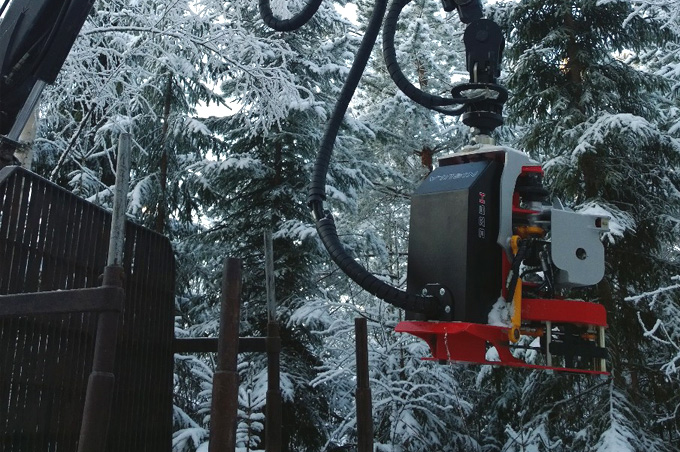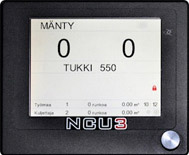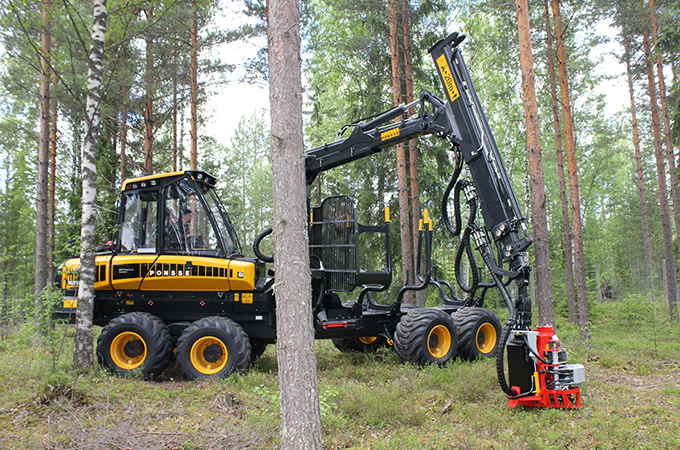ALTERNATIVE 1
Combi machine in which both the work phases can be performed in one go without changes in the equipmentNisula offers three different harvester heads for performing both the work phases in one go. Depending on the crane capacity, the 425C multi-purpose head is suitable for 12-ton and heavier forwarders. Nisula 425C is ideal for first and second thinning. Nisula 500C and 555C are multi-purpose heads designed for more extensive thinning operations. Depending on the crane capacity, 500C and 555C are suitable for 15-ton or heavier forwarders.
Base machine requirements, Nisula 425C:
- 100 cm3 variable volume pump
- welve-ton or heavier forwarder in which the minimum lifting capacity of the crane with full reach is 550 kg
- Safety glazing
Base machine requirements, Nisula 500C:
- 130 cm3 variable volume pump
- Fifteen-ton or heavier base machine in which the minimum lifting capacity of the crane with full reach is 750 kg
- Safety glazing
Base machine requirements, Nisula 555C:
- 130 cm3 variable volume pump
- Fifteen-ton or heavier base machine in which the minimum lifting capacity of the crane with full reach is 900 kg
- Safety glazing
The customer’s requirements and thoughts concerning strip road opening are determined at the time of purchase. Depending on the model and make of the base machine, the strip road can be opened at the front over the cab or behind the loading space by reversing. The harvesting direction can be taken into consideration in equipping the forwarder.
Benefits to the customer:
- Enables harvesting from stump to roadside without changes in the equipment
- The integration of felling and loading increases operating efficiency
- The harvester head can also be changed to an accumulating energy head (Nisula 285E+) or a traditional timber grapple
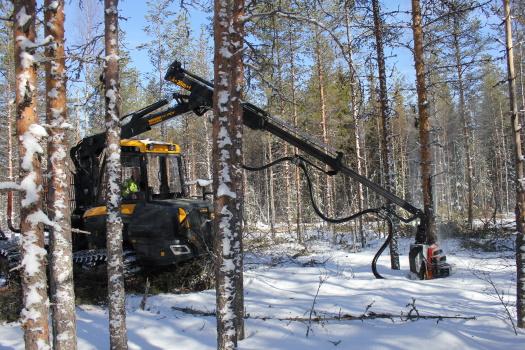
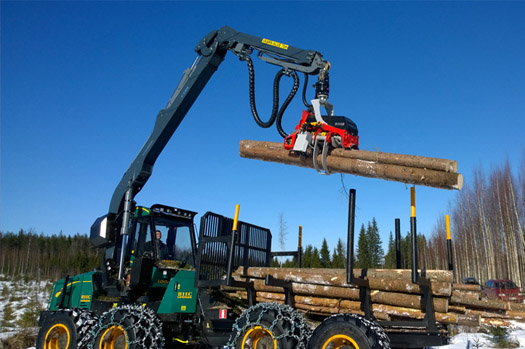
ALTERNATIVE 2
Forwarders equipped with a separate harvester head and a timber grappleIf the harvester head and the loading grapple are changed for the operation to be performed, a traditional timber grapple can also be used in harvesting. In this case, the requirements concerning the base machine equipment and the lifting capacity of the crane are not so high. This means that older and smaller forwarders can also be converted for combined use.
The harvester head alternatives are Nisula 325H designed for first thinning and delimbed energy wood harvesting, 425 series heads designed for first and second thinning, and 500 series heads designed for more extensive thinning operations.
Base machine requirements, Nisula 325H:
- 71 cm3 variable volume pump
- Ten-ton or heavier forwarder in which the minimum lifting capacity of the crane with full reach is 350 kg
- Safety glazing
Base machine requirements, Nisula 425H/C:
- 100 cm3 variable volume pump
- Twelve-ton or heavier forwarder in which the minimum lifting capacity of the crane with full reach is 550 kg
- Safety glazing
Base machine requirements, Nisula 500H/C:
- 130 cm3 variable volume pump
- Fifteen-ton or heavier forwarder in which the minimum lifting capacity of the crane with full reach is 750 kg
- Safety glazing
